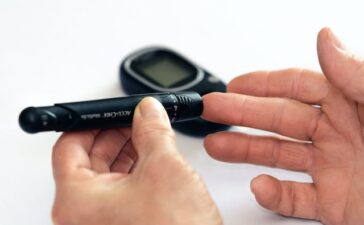You won’t find many in the medical community now who’ll disagree with “breast being best” for a baby, conceding that breast milk offers the most complete source of nutrition for infants. However, as a growing number of people learn how important vitamin D is to the human body, supporting studies of vitamin D and the critical role it plays in the health of infants are mounting up. Studies show that mother’s breast milk doesn’t always have the amount of vitamin D that a baby needs for healthy growth and development.
The Benefits of Vitamin D for Babies
Referred to at times as being one of the “wonder vitamins”, vitamin D is among the most important vitamins for anyone, regardless of their age. For babies in particular though, vitamin D has several benefits including:
- Maintaining calcium and potassium levels in their blood so their bones and teeth can grow strong
- Maintains healthy insulin levels (studies have revealed that sufficient consumption of vitamin D during early childhood helps prevent type 1 diabetes)
- Supports the growth and development of a baby’s nervous system and heart
- Maintains baby’s mineral balance and blood clotting ability Research has also shown adequate vitamin D levels can decrease the risk of infection and even halt the development of autoimmune diseases like multiple sclerosis.
How To Make Vitamin D Part Of Your Baby’s Life
If your baby’s under a year of age and is being either entirely or just partially nourished via breastfeeding, the ideal way to give them that all important dose of vitamin D is to administer one 400IU (international units) of vitamin D a day. Mums can do this easily by simply putting a drop on one of their nipples before their babies latch on, (one must make sure their baby latches correctly however, and feeds for a minimum of at least 30 seconds). If your baby gets his or her nourishment via vitamin D-fortified infant formula and drinks one liter or more of this formula per day, your baby is probably getting enough. As babies grow, they can obtain vitamin D from a variety of other sources such as :
- Oily fish
- Sunlight
- Vitamin D fortified foods (whole cows milk for example)
- Eggs
- Children’s chewable D-vitamins
Before giving any new supplements to your baby you need to make sure to consult your baby’s doctor for advice and additional guidance.
There are many places where you can buy maternity clothes these days, but not all of them offer the same quality or selection. If you’re looking for the best place to buy maternity clothes, Blank Clothing is the perfect option. We offer a wide range of maternity corporate work wear, as well as casual and formal options, so you can find the perfect outfit no matter what the occasion. Plus, our prices are unbeatable, so you can shop without breaking the bank.





